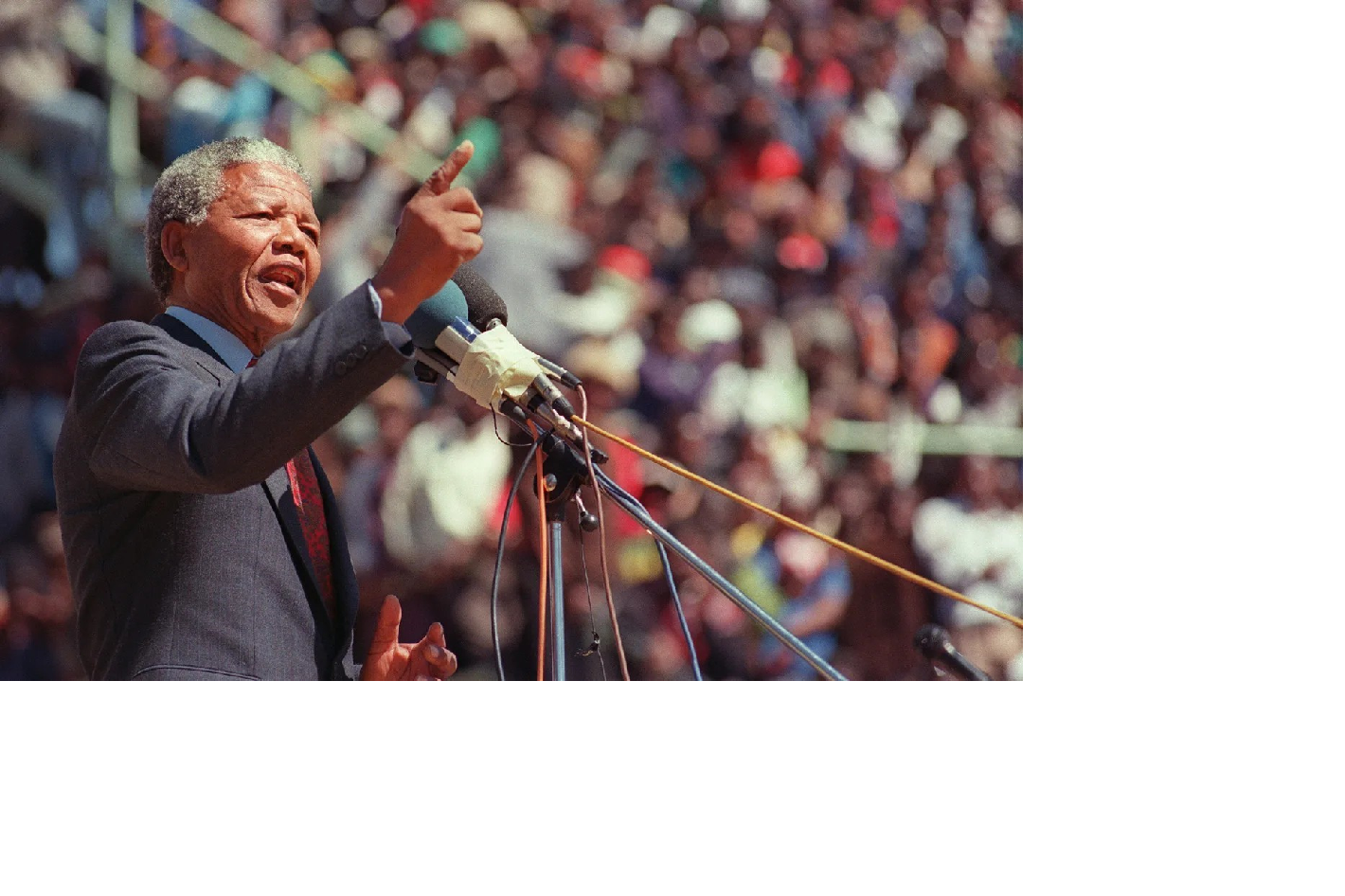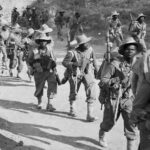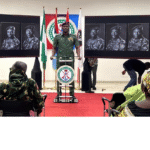
MILITARY SPEECHES THAT SHAPED AFRICA.
Africa’s history is marked by intense struggles for sovereignty, from colonial invasions to liberation wars and post-independence consolidation. In these struggles, military speeches often became more than battlefield addresses: they were rallying cries that galvanized troops, mobilized civilians, and helped forge national identities. Delivered by leaders who were both statesmen and commanders, such orations transcended their immediate context, leaving echoes that shaped Africa’s political and military path.
The earliest of these came in 1936, when Emperor Haile Selassie of Ethiopia addressed the League of Nations. Speaking from exile after Mussolini’s invasion, he denounced the use of chemical weapons against his people and accused the League of betraying its covenant. Declaring that he sought justice not just for Ethiopia but for all nations vulnerable to aggression, Selassie’s words exposed the League’s impotence and foreshadowed the coming world war. More importantly for Africa, his appeal became a symbol of defiance, inspiring generations of anti-colonial movements and earning him recognition as a father figure of African resistance.
Related Article: CIVIL-MILITARY RELATIONS IN FRAGILE STATES
A few years later, in 1940, Winston Churchill’s call to “blood, toil, tears and sweat” resonated far beyond Britain. While intended for the House of Commons, his words reverberated across Africa, then a vital theatre of World War II. Colonial troops from Nigeria, Kenya, and elsewhere fought in North Africa and Europe under the banner of Allied victory. Ironically, the very soldiers who shed blood for the empire returned home questioning why they should still endure colonial domination. Thus, Churchill’s wartime resolve unintentionally nurtured the seeds of African self-determination.
That momentum came to life in 1957, when Kwame Nkrumah declared Ghana’s independence. Standing before a jubilant crowd in Accra, he proclaimed, “At long last, the battle has ended! Ghana, your beloved country, is free forever!” For Nkrumah, independence was not just a national triumph but the beginning of continental liberation. His emphasis on unity and vigilance against neo-colonialism inspired a domino effect across Africa, positioning Ghana as a hub for both political strategy and military training for freedom fighters elsewhere.
In Congo three years later, Patrice Lumumba used independence day to deliver an unsparing message. While King Baudouin of Belgium struck a paternal tone, Lumumba broke with protocol, condemning colonial cruelty and vowing that Congolese soldiers would defend their own land. “We are no longer your monkeys,” he declared, words that shocked the world. His defiance, however, made him a target, and within months he was assassinated in the turbulence of Cold War rivalries. Yet his bold stance radicalized African nationalists and strengthened the resolve of movements in Angola, Mozambique, and beyond.
Meanwhile in South Africa, Nelson Mandela articulated the moral necessity of armed struggle during the Rivonia Trial of 1964. As co-founder of Umkhonto we Sizwe, the ANC’s armed wing, Mandela explained why sabotage had become inevitable after peaceful resistance failed. His closing words “It is an ideal for which I am prepared to die” transcended the courtroom, transforming his trial into a global indictment of apartheid. Though imprisoned for life, Mandela’s speech fueled international solidarity, brought sanctions against Pretoria, and gave legitimacy to armed resistance in southern Africa.
As Africa moved toward continental unity, Haile Selassie once again played a pivotal role. In 1963, at the founding of the Organization of African Unity in Addis Ababa, he urged leaders to unite militarily and politically against lingering colonialism. Warning that division meant defeat, he stressed the need for collective defence. This appeal laid the foundation for coordinated liberation efforts across the continent, from Algeria to Zimbabwe, and established a framework for solidarity that still underpins the African Union today.
The liberation wars of the 1970s then produced fiery voices like Samora Machel of Mozambique. Fresh from independence in 1975 after a decade of guerrilla struggle, Machel reminded the people that victory was not an end but a beginning. “Independence is not a gift, but a rifle in the hands of the people,” he declared, urging vigilance against imperialist designs. His words inspired neighbouring liberation movements in Namibia and South Africa, underscoring the idea that freedom required both continued struggle and popular participation.
Finally, Julius Nyerere of Tanzania offered a different vision in 1967 through the Arusha Declaration. While others celebrated military might, Nyerere stressed that armed forces must serve the people, not dominate them. His insistence on linking military discipline with socialism redirected Tanzania’s army toward development projects and support for liberation movements.
Taken together, these speeches demonstrate how oratory became a weapon as potent as any rifle. From Selassie’s appeals for justice to Mandela’s courtroom defiance and Machel’s revolutionary fire, each address not only answered the crisis of the moment but also provided a blueprint for Africa’s political future.
King Richard Igimoh, Group Editor ALO
King Richard Igimoh, Group Editor African Leadership Organisation is an award-winning journalist, editor, and publisher with over two decades of expertise in political, defence, and international affairs reporting. As Group Editor of the African Leadership Organisation—publishers of African Leadership Magazine, African Defence & Security Magazine, and Africa Projects Magazine—he delivers incisive coverage that amplifies Africa’s voice in global security, policy, and leadership discourse. He provides frontline editorial coverage of high-profile international events, including the ALM Persons of the Year, the African Summit, and the African Business and Leadership Awards (ABLA) in London, as well as the International Forum for African and Caribbean Leadership (IFAL) in New York City during the United Nations General Assembly.
Recent Posts
Categories
- Air & Aerospace17
- Border Security15
- Civil Security6
- Civil Wars4
- Crisis5
- Cyber Security8
- Defense24
- Diplomacy19
- Entrepreneurship1
- Events5
- Global Security Watch6
- Industry8
- Land & Army9
- Leadership & Training5
- Military Aviation7
- Military History27
- Military Speeches1
- More1
- Naval & Maritime9
- Policies1
- Resources2
- Security12
- Special Forces2
- Systems And Technology9
- Tech6
- Uncategorized6
- UNSC1
- Veterans7
- Women in Defence9










